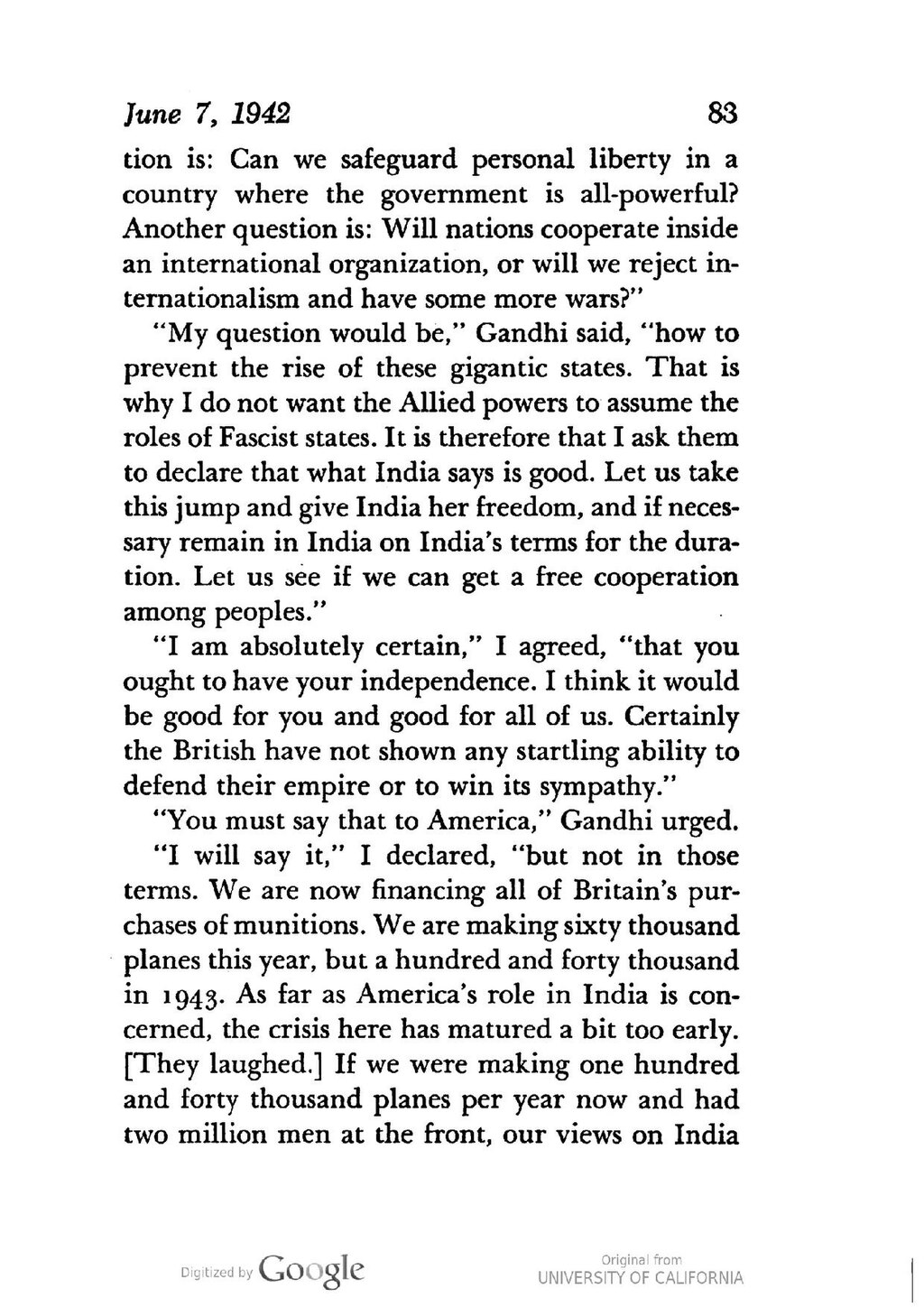tion is: Can we safeguard personal liberty in a country where the government is all-powerful? Another question is: Will nations cooperate inside an international organization, or will we reject internationalism and have some more wars?”
“My question would be,” Gandhi said, “how to prevent the rise of these gigantic states. That is why I do not want the Allied powers to assume the roles of Fascist states. It is therefore that I ask them to declare that what India says is good. Let us take this jump and give India her freedom, and if necessary remain in India on India’s terms for the duration. Let us see if we can get a free cooperation among peoples.”
“I am absolutely certain,” I agreed, “that you ought to have your independence. I think it would be good for you and good for all of us. Certainly the British have not shown any startling ability to defend their empire or to win its sympathy.”
“You must say that to America,” Gandhi urged.
“I will say it,” I declared, “but not in those terms. We are now financing all of Britain’s purchases of munitions. We are making sixty thousand planes this year, but a hundred and forty thousand in 1943. As far as America’s role in India is concerned, the crisis here has matured a bit too early. [They laughed.] If we were making one hundred and forty thousand planes per year now and had two million men at the front, our views on India
